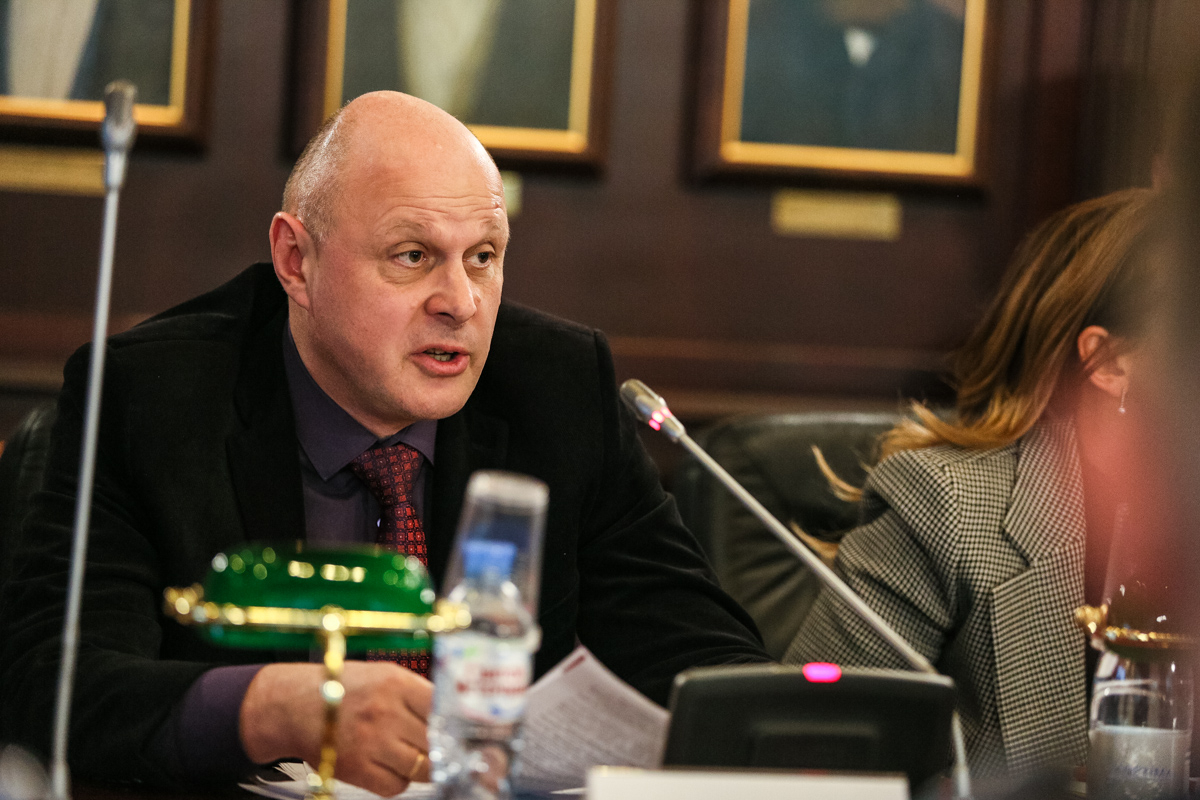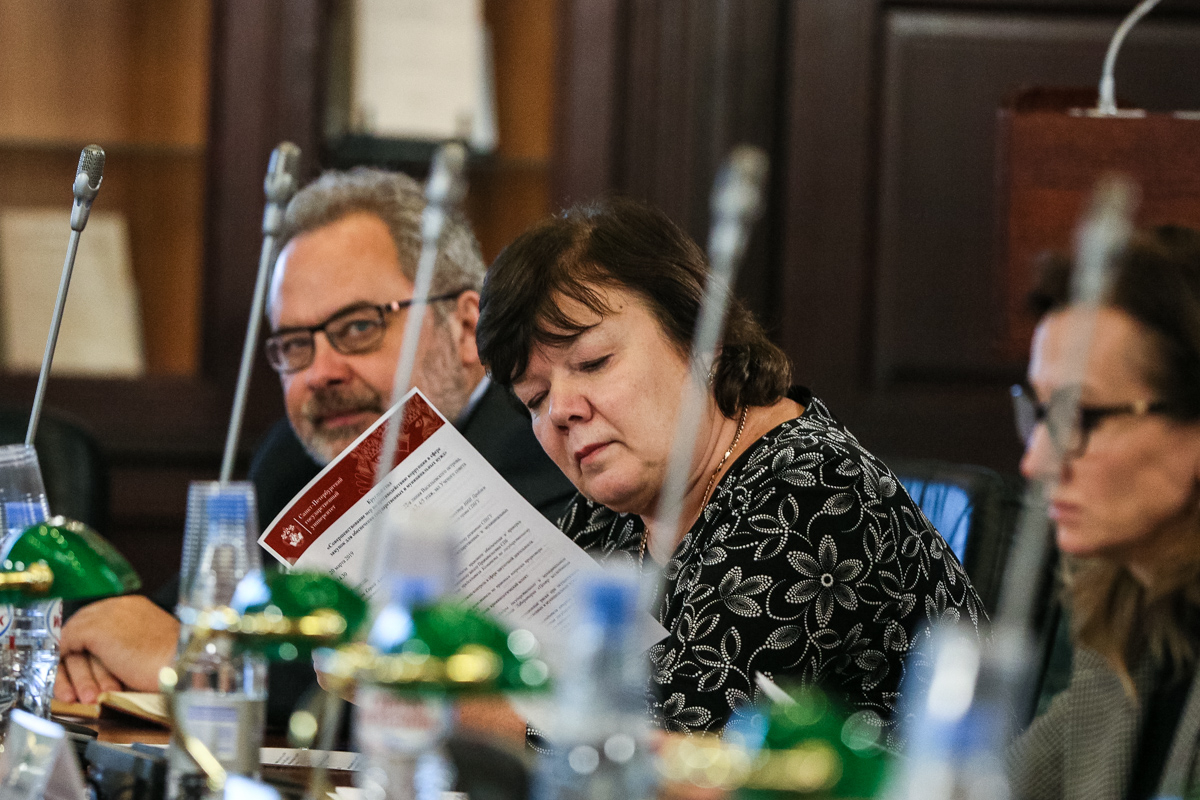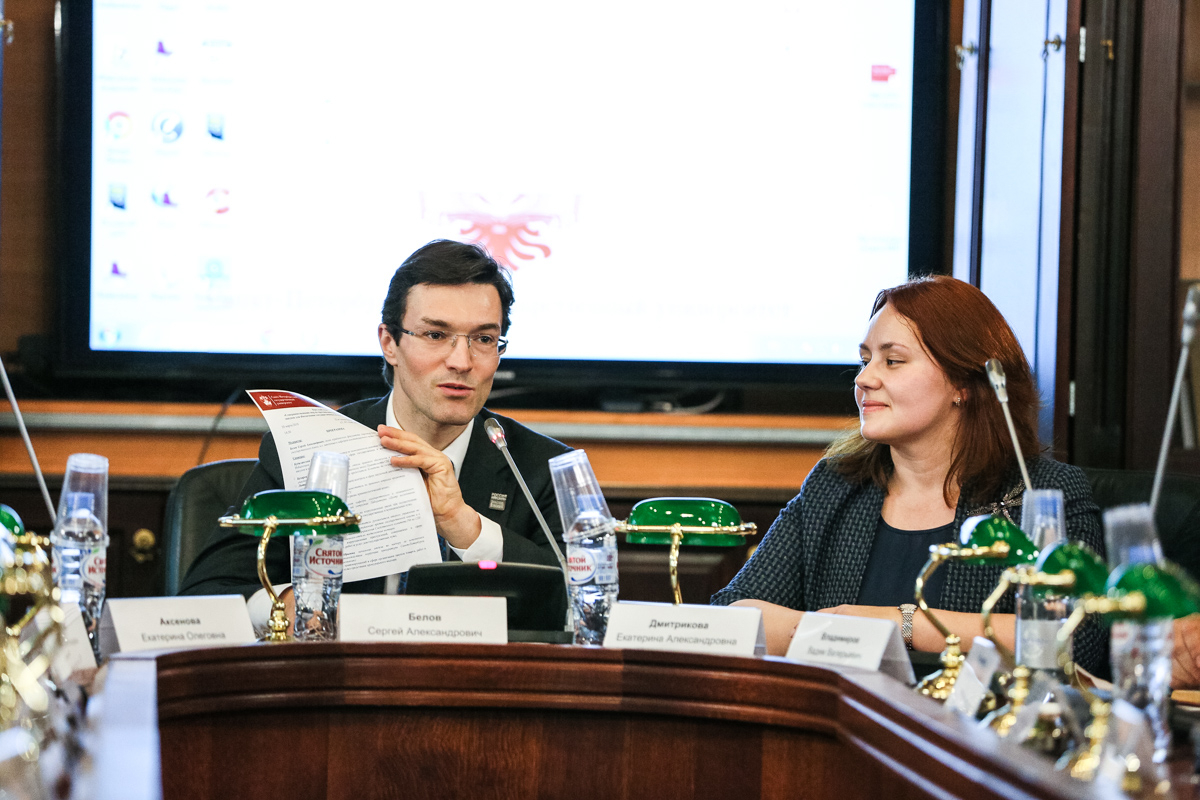Participants of the Eurasian Anti-Corruption Forum insist: ‘The sphere of procurement needs improvement’
Round table discussions on ‘Improvement of anti-corruption measures in public procurement’ have been held at St Petersburg University. The event was organised in cooperation with the Institute of Legislation and Comparative Law under the Government of the Russian Federation and formed part of the 7th Eurasian Anticorruption Forum in Moscow.
Experts of St Petersburg University, Head of the Federal Antimonopoly Service in St Petersburg Vadim Vladimirov, Chair of the Legal Committee of St Petersburg Ekaterina Aksenova, representatives of the Investigative Committee, Public Procurement Committee, Vodokanal of St Petersburg, Sberbank and Commissioner for Entrepreneurs’ Rights.
The sphere of state and municipal procurement was and still is at risk of corrupt behaviour. It is a large segment of the Russian economy. Therefore, in order to reduce costs and save budget it is necessary to develop new and update already existing measures to fight corruption in this sphere.
Sergei Belov, Dean of the Faculty of Law, St Petersburg University
The main topic for discussion was the correspondence of legislation on public procurement and the provisions of anti-corruption law. The experts assessed the normative regulation of procurement procedures. On the one hand, lawyers state, there are factors that minimise corruption risks, such as: the growing role of e-procurement; electronic forms; increasing transparency of procedures; client ranking; and inclusion of an anti-corruption clause into contracts. On the other hand, the participants came to a conclusion about the redundancy of normative regulation, which might complicate procurement processes.
Other topics for discussion were: anti-corruption mechanisms and the efficiency of compliance control in procurement; substantive characteristics of corruption risks; and typical violations in public procurement.
During the discussion, the experts emphasised that the number of violations is not decreasing. This is despite positive changes in procurement legislation and improved anti-corruption procedures in this sphere. These include the measures that organisations develop and adopt on their own initiative.
The participants suggested that more emphasis should be placed on the correlation of protective and regulatory provisions in public procurement to prevent corruption. Effective collaboration must be developed between administrative bodies monitoring government and municipal procurement and law enforcement agencies. This includes preparation of proposals on reviewing or amending legislation.




